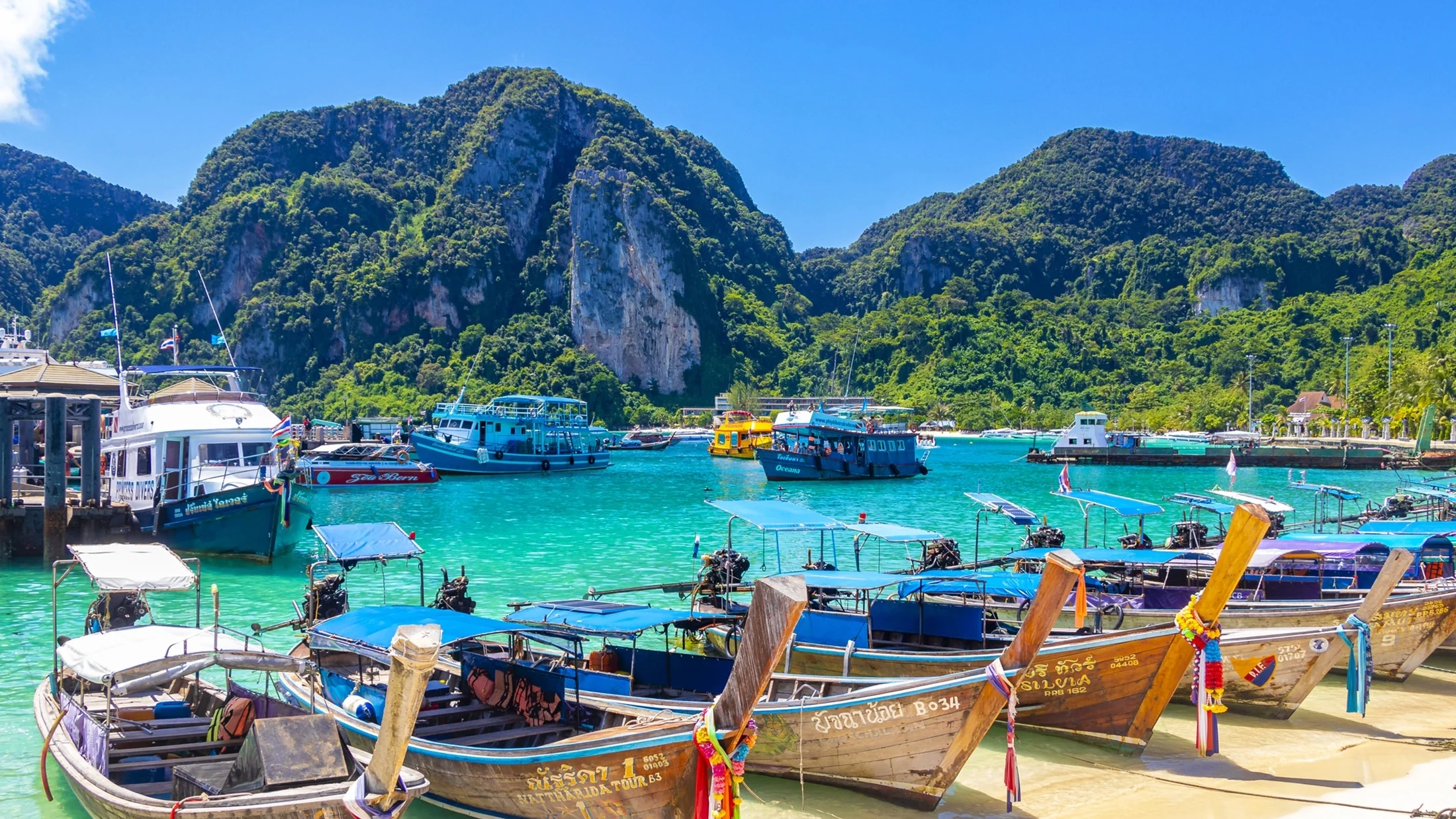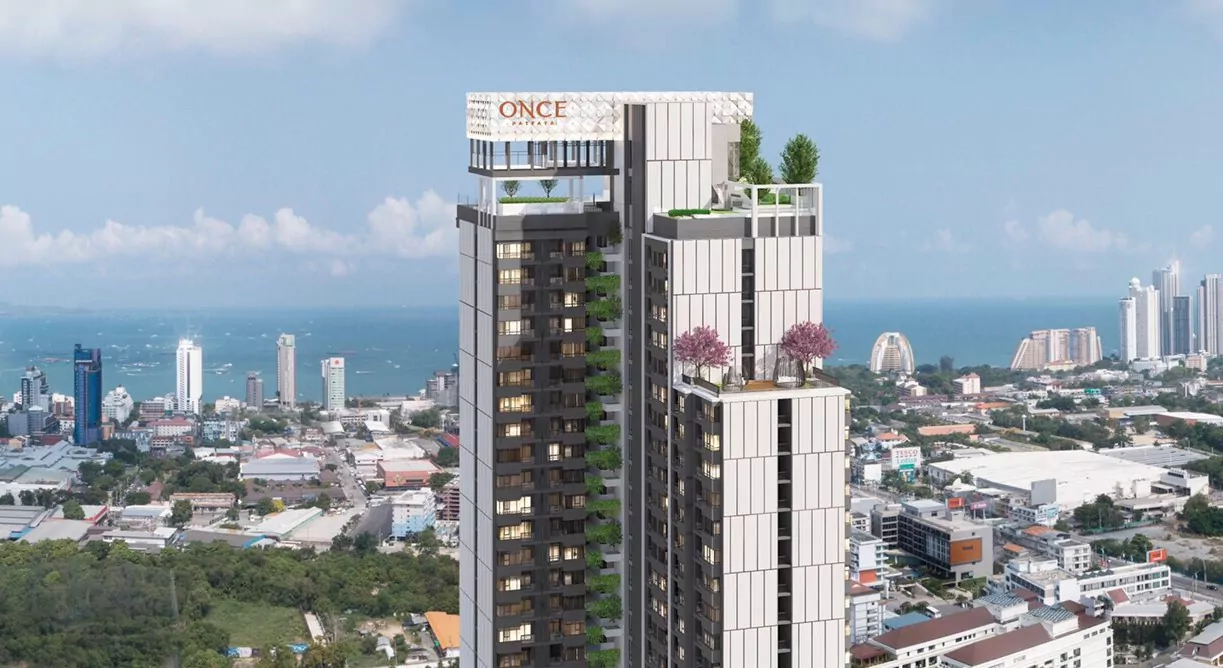


Real Estate Specialist
Thailand is not only an exotic paradise for tourists, but also a promising destination for real estate investment. In this article we will take a detailed look at all aspects of buying real estate in Thailand in 2025, providing you with a complete guide to help you make an informed choice and avoid common mistakes.
Property purchase procedure
Buying a property in Thailand is a process that requires care and knowledge of local laws. Here are the main steps that this process involves::
Object selection. The first step toward buying real estate in Thailand - is the selection of a suitable property. At this stage it is important to decide on the type of property (condominium, villa, plot of land), its location (resort area, city, rural area), as well as the budget. After that, you can start searching for an object using the services of real estate agencies or independently. When a suitable object is found, it should be evaluated in detail: check the condition (especially important when buying secondary real estate), assess the infrastructure of the area, the noise level, etc. The seller should also negotiate with the seller at this stage. Also at this stage, negotiations with the seller about the price are held. It is a good idea to research market prices for similar properties beforehand to get an idea of a reasonable price and the possibility of bargaining.
Signing a preliminary contract. After the object is selected and the price is agreed, the buyer and seller sign a preliminary contract. This document sets out in detail all the terms of the transaction, including the price, terms of payment and transfer of the object, liability of the parties and other important points. It is important that the contract is drawn up by a professional lawyer and contains all the necessary conditions to protect the interests of the buyer. Usually, at this stage, the buyer makes a deposit so that the seller can withdraw the object from sale. If the buyer refuses the purchase for some reason, the deposit is usually not returned. If the seller refuses the transaction, he is obliged to return the deposit in double amount.

Checking the legal purity of the object. At this stage, a thorough check of all the documents for the property is carried out. The purpose of this stage is to ensure that the seller is the legal owner of the property and has full authority to sell it. It also checks that there are no encumbrances on the property, such as mortgages, liens, seizures or other obligations that may prevent the transfer of ownership. This stage may include inquiries to registration and tax authorities, as well as consultations with lawyers. In case the object is part of apartment complex In addition, it is necessary to verify the existence of all necessary permits for the construction and operation of the complex. Checking the legal cleanliness of an object is a complex and responsible process that requires professional knowledge and experience, so it is recommended to seek assistance from specialized legal agencies or attorneys specializing in real estate.
Payment. After checking the legal purity of the object, the payment stage follows. This usually takes place in two stages: first, the buyer makes a deposit so that the seller can withdraw the object from sale, and then, after final confirmation of all the details and signing the final contract, full payment is made. It is worth noting that payment is usually made in Thai baht, so currency exchange may be required. It is also important to note that some banks may charge a transfer fee, which should be taken into account when planning your budget.

Registration of a transaction in the Land Department. This is the last and most important stage at which the official transfer of ownership from the seller to the buyer takes place. At this stage, all documents confirming ownership are carefully checked for compliance with the laws of Thailand. After checking the documents, in the presence of both parties, an act of transfer of ownership is drawn up, which is then registered with the Land Department. This means that ownership is officially transferred from the seller to the buyer. After registration of the act, the buyer receives an official certificate of ownership of the property.
The entire process from selecting an object to completing a transaction can take from several weeks to several months, depending on the specific situation. Therefore, it is important to plan your time in advance and be prepared for possible delays.
Real estate agencies in Thailand play an important role in the real estate buying process. They can help you choose the right property, negotiate with the seller, and can also help with the transaction. However, it is important to make sure that the agency is licensed and reputable. Legal aspects transactions are also important: it is necessary to carefully check all documents and make sure that the object is legally clean.
Remote purchase of real estate
In 2025, buying property remotely in Thailand has become increasingly popular. It is convenient, especially in a pandemic where flights may be limited. However, this approach has its risks, including the possibility of falling victim to fraudsters. It is recommended to use the services of trusted real estate agencies and lawyers to ensure the safety of the transaction.
Preparation: The beginning of any successful real estate purchase is thorough preparation. Research the Thai real estate market to understand which regions and types of properties are most sought after and promising. Determine your preferences: whether you are looking for a property to live in, to rent out or as a long-term investment. Take into account such factors as proximity to the sea, infrastructure, transportation hubs. Determine your budget, taking into account not only the cost of the property itself, but also additional costs such as taxes, fees and maintenance. If you are new to the business, consider consulting with professional realtors or lawyers who specialize in real estate in Thailand.

Object search: Cooperate with a reliable real estate agency that will help you find suitable properties and provide you with detailed information and photos. Experienced agents will help you assess the market value of properties, as well as provide information about the area, infrastructure, and potential rental returns. Some agencies offer virtual tour services, which allows you to "visit" the site without leaving your home. Communicate with the agent, ask questions, and don't rush to make a decision.It's important to make sure that the selected property fully meets your expectations and goals.
Checking the map item: If possible, hire a local specialist to check the condition of the property. If this is not possible, make sure that the realtor provides you with all the necessary information.
It is important to pay attention to the condition of the object, check the communications (electricity, water supply), and assess the potential costs of repairs or upgrades. If you are buying a property for subsequent rental, pay attention to its attractiveness to potential tenants.
In the case of a remote purchase, the realtor can organize a virtual walk around the property or provide a video recording. They can also help you find a local specialist who will check the property and provide you with a detailed report. Do not forget that any shortcomings or problems found at this stage can be used by you to negotiate a price reduction.
Legal review: It is important to conduct a legal due diligence on the property. This can be done by your agent or an independent lawyer. Due diligence includes confirming ownership, checking for encumbrances or restrictions, and checking all documents associated with the property. When buying remotely, this step is particularly important because you cannot personally check documents. Make sure that the lawyer or agent provides you with complete copies of all documents and explains them in detail. If possible, have an independent lawyer familiar with Thai law review the documents.

Signing the contract: After checking all the details, you sign a preliminary contract and make a deposit. At this point, it is important to make sure that all the terms of the contract are clearly described and protect your interests. The contract must be written in two languages — Thai and your native language-so that you can understand all the terms and conditions exactly. The contract can be signed remotely through a notary or using an electronic signature, depending on the legislation of your country. After signing the contract, the deposit is usually transferred to the seller. This process must be carried out through a reliable bank or payment system with a guarantee of transaction security.
Making a deal: The final stage includes full payment and registration of the transaction in the Land Department. This process can be performed by your lawyer by proxy. When making a remote purchase, it is important to make sure that all documents, including the contract, power of attorney and property documents, must be properly certified and legalized. This usually involves notarizing and apostilling documents. Your lawyer or realtor should ensure that the transfer of funds is secure, usually through an escrow account. Upon completion of the transaction, you must be provided with copies of all documents, including the contract of sale and the certificate of ownership.
Keep in mind that buying a property remotely requires special attention to detail and legal aspects. Feel free to ask questions and ask for more information.
A brief overview of the real estate market in Thailand in 2025
The real estate market in Thailand in 2025 continues to grow, attracting more and more foreign investors. Particularly popular are resort areas such as Phuket, Pattaya and Samui, which offer a wide range of properties from budget apartments to luxury villas.
Apartments: This is the most affordable option for foreigners, especially in resort areas. Apartments are often offered with fully equipped kitchens, furniture and other amenities, making them an attractive choice for rental or permanent residence. Cost apartments in Thailand can vary depending on location, size and level of luxury, but on average it starts at around US$50,000 for a one-bedroom apartment in a resort area. For more prestigious properties in popular tourist areas, prices can reach USD 200,000 or more.
Villas: Villas in Thailand - is a luxury option that usually includes spacious living areas, a private pool and garden. They are ideal for families or groups of friends and can be very lucrative when rented out. The cost of villas varies depending on their size, location and level of luxury. On average, villas in popular resort areas such as Phuket or Koh Samui can cost between $200,000 and $2 million. In quieter and more remote areas, the cost can be much lower, starting from US$100,000.
Condominiums are a popular choice among foreign investors, as Thailand's legislation allows foreigners to own 100% of their properties. They are often located in convenient locations with easy access to beaches, restaurants, and shopping. Prices for condos vary depending on the location and comfort level, but on average, the cost of a one-bedroom condominium in resort areas starts at $ 60,000. For more luxurious options, prices can be as high as $ 300,000 or higher.
It is important to note that the real estate market in Thailand continues to develop and expand, with the emergence of new projects and opportunities for investors. However, as with any investment project, potential buyers should conduct thorough research and, if possible, consult with experts before making a purchase decision.
Features of buying real estate in Thailand
Buying a property in Thailand has its own characteristics, which are important to consider when planning an investment.
Types of properties: In Thailand, foreigners are free to buy only condos. These are multi-apartment buildings where each apartment is a separate property. It is important to note that by law, at least 51% of all units in a condominium must belong to Thai citizens.The acquisition of land and houses by foreigners is directly regulated by law and in most cases prohibited. However, there are ways to circumvent this restriction.
One way is to create a legal entity (usually a limited liability company) that can own land. In this case, the majority of the company's shares must be owned by Thais, but a foreigner can control the company through preferential shares.
Another option is a long-term lease of land or a house, also known as a leasehold. The law allows foreigners to lease land for up to 30 years, and this lease can be extended.
In any case, before buying a property in Thailand, it is recommended to consult with a lawyer specializing in real estate to understand all possible options and risks.

Legislation: Buying real estate in Thailand is subject to local law, which has its own peculiarities. For example, when buying a condominium, foreigners can only own a certain share of all units in the building. According to the Act on condominiums in ThailandFor example, at least 51% of all units in a building must be owned by Thai nationals. This means that foreigners can own no more than 49% of units in a particular building. In addition, foreigners cannot own land directly, but can lease it for a long term (up to 90 years) or acquire it through the establishment of a legal entity in Thailand.
Purchase process: The purchase process can be quite complex and requires knowledge of local laws, including signing a contract, verifying the legal integrity of the property, and completing the transaction.
Real estate services: Using the services of professional realtors can significantly simplify the purchase process and help avoid common mistakes and problems. Realtors have up-to-date information about the real estate market, can offer properties that meet your requirements and budget, help in negotiations with the seller and organize a check of the legal purity of the object. In addition, many agencies offer transaction processing and post-purchase support services, including property management and rental. However, it is important to choose trusted agencies with a good reputation and the necessary licenses.

Taxes and fees: When buying a property in Thailand, you need to take into account additional costs, which can range from 6% to 10% of the property value. This includes:
- Transfer of ownership tax: This tax is usually 2% of the assessed value of the property and is usually divided in half between the buyer and seller.
- Value Added Tax (VAT): If the seller is a legal entity, a VAT of 7% is imposed on the transaction.
- Transaction Registration Fee: This fee is 0.01% of the estimated value of the property.
- Special use tax: If the property has been owned by the seller for less than 5 years, a special use tax of 0.5% to 3% may be imposed on the transaction.
Remember that a successful property purchase in Thailand requires careful preparation and understanding of the local market and legislation.
Investment potential
Real estate in Thailand has high investment potential, making it attractive to foreign investors.
- Tourism sector: The steady growth of the tourism sector provides high demand for rental housing, especially in resort areas. This allows property owners to earn a stable income from renting out their homes.
- Locals and expats: There is a growing demand for housing from local residents and foreign expats, especially in large cities and economically active regions.
- Government support: The Thai government actively attracts foreign investment by offering various incentives and programs. For example, the program "Thailand Elite offers long-term visas for foreigners investing in real estate.
- Height Real estate values: Real estate values in Thailand continues to grow, allowing investors to profit from the increasing value of their investments.
- Low mortgage rates: Mortgage programs with relatively low rates are available for foreign investors, which makes real estate investments even more affordable.
Thus, investments in real estate in Thailand can become not only a way to secure a comfortable home in an exotic country, but also a source of stable income and long-term investments.
Examples of successful purchases
Many foreign investors have already appreciated the benefits of buying real estate in Thailand.
The Johnson family from the UK: They've acquired villa in Phuket and successfully rent it out, receiving a stable income. This allowed them not only to recover their investment, but also to receive additional income.
Maria from Spain: Maria, a successful entrepreneur from Spain, decided to invest in real estate in Thailand as part of her investment portfolio. She purchased several condominiums in the center of Bangkok. and rents them out on long-term leases to locals and foreign businessmen. This has brought her a steady income and a significant increase in the value of her investment, thanks to rising real estate prices in the area.

The Li family from China: The Lee family purchased several condos in Bangkok as a long-term investment. They rent these apartments to local residents and foreign expats, earning a stable income.
These examples show that with the right approach and proper investment, buying a property in Thailand can be not only a way to secure a comfortable home in an exotic country, but also a good source of income.
Conclusion
Buying real estate in Thailand in 2025 is a promising investment destination that can bring good returns with the right approach. However, before buying, it is important to thoroughly research all aspects of the process, including legal, financial and visa issues. It is recommended to use the services of professional realtors and lawyers to ensure the safety of the transaction.
The purchase requires a passport, visa (if applicable), proof of financing and legal documents of the property, including a certificate of ownership.
Foreigners may not directly own land in Thailand, but may own condominiums or use long-term lease agreements for land.
The stages include selecting the object, signing a preliminary contract, checking the legal purity, paying for and completing the project with the Land Department.
Foreigners are free to buy condos. Additional legal structures are required to purchase homes or land.
Buyers can expect to pay transfer of ownership tax, VAT (if applicable), transaction registration fee, and possibly special use tax.
The main risks include the possibility of fraud and difficulties in checking the condition of the object and legal purity. We recommend using the services of reliable realtors and lawyers.
Obtaining a mortgage for foreigners is possible, but the conditions and requirements may be more stringent compared to local buyers.
Buying a property in Thailand is considered relatively safe if you follow all legal procedures and use the services of qualified professionals.
The Thailand Elite program offers long-term visas and other benefits to foreign investors, including those who invest in real estate.
The real estate market in Thailand continues to grow, especially popular resort areas among foreign investors, offering a variety of housing options from apartments to luxury villas.
What documents are required to purchase a property in Thailand?
The purchase requires a passport, visa (if applicable), proof of financing and legal documents of the property, including a certificate of ownership.
Can a foreigner own land in Thailand?
Foreigners may not directly own land in Thailand, but may own condominiums or use long-term lease agreements for land.
What are the main stages of buying a property in Thailand?
The stages include selecting the object, signing a preliminary contract, checking the legal purity, paying for and completing the project with the Land Department.
What types of properties are available for foreigners to buy in Thailand?
Foreigners are free to buy condos. Additional legal structures are required to purchase homes or land.
What taxes and fees are charged when buying a property in Thailand?
Buyers can expect to pay transfer of ownership tax, VAT (if applicable), transaction registration fee, and possibly special use tax.
What are the risks of buying a property remotely in Thailand?
The main risks include the possibility of fraud and difficulties in checking the condition of the object and legal purity. We recommend using the services of reliable realtors and lawyers.
Can foreigners get a mortgage to buy real estate in Thailand?
Obtaining a mortgage for foreigners is possible, but the conditions and requirements may be more stringent compared to local buyers.
How safe is buying a property in Thailand?
Buying a property in Thailand is considered relatively safe if you follow all legal procedures and use the services of qualified professionals.
What are the advantages of the "Thailand Elite" program?
The Thailand Elite program offers long-term visas and other benefits to foreign investors, including those who invest in real estate.
What are the current trends in the real estate market in Thailand in 2024?
The real estate market in Thailand continues to grow, especially popular resort areas among foreign investors, offering a variety of housing options from apartments to luxury villas.




























